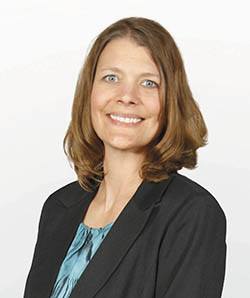How Long Will Your CPA Be Around? (OPINION)
by September 28, 2015 12:00 am 152 views

Along with most industries these days, owners and management of accounting firms are retiring at a rapid pace.
Per the social security administration, approximately 10,000 baby boomers retire each day. Companies in all industries are seeing experienced workers depart, resulting in vacant upper-level positions and the loss of years of real industry knowledge.
Is your company in this boat? Do you have a business transition plan? Whether you plan to pass on the business to the next generation, merge with another company, or sell what you’ve built altogether, it is vital that you begin working toward this transition now.
As the quantity of transitioning businesses increases, the values of these businesses will decrease. The quicker you establish your plan, the better chance you have of recouping those years of sweat equity and getting what you deserve for what you‘ve built.
Do you have a new group of experienced professionals ready to step in and fill the gaps of the boomers? If not, consider these suggestions, paraphrased from human resources consulting firm Robert Half:
• Look into the possibility of phased retirement options. Owners may prefer to ease into retirement by cutting hours and scaling back their schedules. The more they can work with their replacements, the more knowledge will be transferred, which is the most valuable thing of all.
• Groom high-potential individuals. Pinpoint those employees who are the future and invest in them through mentoring and continuing education now.
• Focus on all levels and keep an open mind. Senior level openings often result in openings at other levels as people move up the ladder. Look for capable successors for key roles at all levels.
Also, the best future leaders may not be those next in line for promotion. Survey your team for hidden potential. Your next star may just need some cultivating and polish.
Another thing that is important in your transition is to show your people the vision. If you show your employees your vision for the future of the company and their role in that future, they are more likely to stay and be ready to step up when the time comes.
For CPAs, we are losing years of hands-on experience and immeasurable knowledge of our clients’ past history and future plans if we do not have a succession plan in place. According to a 2012 succession survey from the Private Companies Practice Section of the American Institute of CPAs, 44 percent of multi-owner CPA firms were either discussing a merger, acquisition or sale, or were planning to do so in the next two years. This same survey showed that among sole proprietors only 6 percent have practice continuation agreements (PCAs) in place, which is the first step in succession planning.
Many CPAs work tirelessly to help their clients plan for the future through tax planning, business transition/succession planning, or mergers and acquisitions, and often forget to worry about their own future. If your goal for your company is to have a perpetual life, then you need to make sure this same goal is present for your CPA.
You have spent years building a relationship, transferring knowledge and allowing your CPA to have a voice in the future of your business. That relationship and knowledge need not be lost when they retire. Often, partners hold on to client work and stockpile the detailed information they have gathered instead of passing that work and knowledge along. You should be working with the individuals who will be the partners on your work in the future and encouraging your current partners to involve the next generation as much as possible.
The next time you sit down with your CPA to discuss your plans for the future of your business, ask them about theirs.
Barbara Hambrick is managing member of Beall Barclay & Co. PLC in Fort Smith. She can be reached at 479-484-5740.
